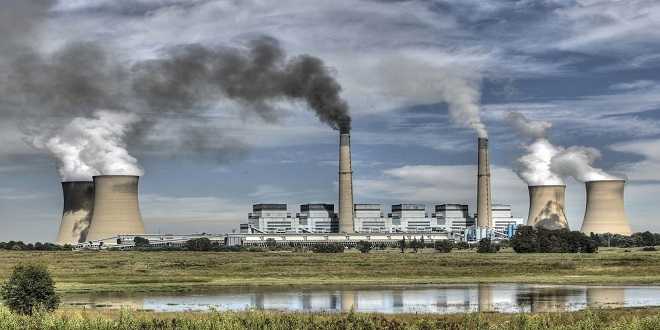Eskom, South Africa’s state-owned power utility, and currently facing enormous workload in generating reliable power for the most diverse economy in Africa has been served with a compliance notice by the nation’s environment ministry, high levels of air pollution being the cause.
According to information from Bloomberg, Eskom’s biggest operational power plants are struggling to remain active as the pollution levels are not yet repaired accordingly.
The heavily relied on power utility has failed to fully repair pollution-abatement equipment at its 4 116-megawatt Kendal power plant that began malfunctioning in early 2018 and was damaged further in a strike later that year.
The ministry issued the notice in December saying the plant would need to shut down two of its six generating units, 1 and 5 if the action wasn’t taken to bring them back into compliance.
Hence, according to the notice, it demanded maintenance plans for the rest.
South Africa generates most of its power from coal and environmentalists have sued the government for not enforcing the law and addressing pollution.
Further, the plant’s emissions of particulate matter, which causes respiratory disease, have driven Eskom’s overall emissions of the pollutant to their worst level in two decades.
According to AirVisual, an air quality monitoring app, units at the plant have been emitting particulate matter at a multiple of the 100 milligrams per normal cubic meter limit., the pollutant causes asthma, bronchitis and emphysema.
The demands come at a risky time for Eskom, which is fighting to supply South Africa with sufficient power and has been forced to implement nationwide power cuts, which have derailed economic operations in most parts of the nation.
However, Eskom is building two bigger plants, Medupi and Kusile, but they are not yet complete and it is struggling to service over $29 billion (R454 billion) debt burden.
Eskom executes generation, transmission and distribution of power, and ultimately generates approximately more than 90 per cent of electricity consumed in South Africa, amounting to about 45 per cent used in Africa.
In 2019 a Bloomberg Environment report estimated that the company emits about 42 per cent of South Africa’s total greenhouse gas emissions.
However, Bloomberg noted that Eskom said that it has “put in place a plan to ensure that Kendal is brought back into compliance as soon as possible,”
On the contrary, still, Eskom has not attended the compliance notice because of the impact it would have on electricity generation. Barbara Creecy, the environment minister, is considering the objection.
The electrostatic precipitators, equipment that collects particles on charged plates, have been damaged along with dust-handling plants. The company plans to take the units out of operation one at a time to carry out repairs.
Units 1 and 2 are complying with the limit, while unit 5 has been taken offline for repairs. Unit 3, 4 and 6 are above the limit and the next repairs planned will be to unit 6 in the second half of the year, Eskom said.
Also, Robyn Hugo, program head for climate change and pollution at Cape Town’s Centre for Environmental Rights, a legal organization that represents activists, was quoted by Bloomberg commenting on the matter, saying “An expert’s initial assessment has found that the total annual excess deaths due to Kendal’s emissions for the 2018 period were approximately 100 and about 90 deaths for the 2019 period,”
“Given its staggering impact on human health and wellbeing, Eskom cannot continue to treat compliance with legal requirements as a suggestion,” Hugo said
In addition, Eskom published on its website that, it does not expect to implement rotational load-shedding today.
“Additional generation units have returned to service overnight. This further increases generation capacity and helps us to avoid load-shedding” read the statement in part.
READ: South Africa to brace for more power cuts
